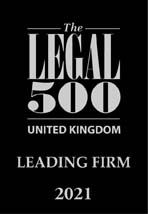Deliberately started fires and the Hague-Visby Rules: Glencore Energy UK Ltd, Glencore Ltd v Freeport Holdings Ltd, The ‘Lady M’
The Court of Appeal has confirmed that the fire exception in the Hague-Visby rules applies even in circumstances where the fire was deliberately started by a crew member.
The Circumstances
On 14 May 2015 the ‘Lady M’ was on a voyage from Russia to the USA when a fire was deliberately started in the engine room by the Chief Engineer.
Owners declared general average and cargo interests (owners of 62k MT of fuel oil carried on board) brought proceedings claiming costs they had incurred in connection with the fire (including sums payable to salvors). Cargo interests alleged breach of contract by Owners.
Owners relied on the Hague-Visby fire exception, but cargo interests argued they could not rely on the same where the cause of the fire was a deliberate act of the crew.
The Issues
The main question addressed by the Court of Appeal was “whether the provisions of article IV.2(b) are capable of exempting Owners from fire caused deliberately by the Chief Engineer.”
By way of reminder, article IV.2(b) of the Hague-Visby Rules states:
2. Neither the carrier nor the ship shall be responsible for loss or damage arising or resulting from… (b) Fire, unless caused by the actual fault or privity of the carrier.
There was another issue before the Court concerning barratry, but in light of the Court’s findings on the above issue, the barratry issue didn’t fall for detailed consideration.
Conclusions
The Court of Appeal concluded that there was no limitation, express or implied, in the fire exception to prevent it applying in circumstances where a crew member had deliberately started a fire. Accordingly the exception applied, relieving owners of liability under the Hague-Visby Rules.
The judgement usefully charts the history and background to the Hague-Visby Rules and gives some useful guidance on their interpretation. The judgement should give litigants caution before they place too much reliance on cases preceding the implementation of the Hague-Visby Rules, suggesting that the relevance of such authorities in construing the Rules is limited.
Even if not directly concerned with the fire exception, practitioners would do well to bear this judgement in mind when seeking to construe the other Hague-Visby provisions.







